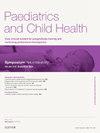The presentation of avoidant restrictive food intake disorder (ARFID) in children with complex backgrounds
Q3 Medicine
引用次数: 0
Abstract
Avoidant restrictive food intake disorder (ARFID) is a feeding and eating disorder characterized by restricted food intake with limited dietary variety often resulting in suboptimal nutrition and poor growth. While it is a relatively new condition, emerging from DSM5 criteria in 2013, it has a high prevalence in children, with studies suggesting it affects between 1 in 5 and 1 in 20 children. It is more common in children with other medical conditions and particularly in those with neurodivergence. This short article provides an overview of what is known about ARFID and how it can be managed.
逃避型限制性食物摄入障碍在复杂背景儿童中的表现
回避性限制性食物摄入障碍(ARFID)是一种进食障碍,其特征是食物摄入受限,饮食种类有限,通常导致营养不佳和生长不良。虽然这是一种相对较新的疾病,2013年才从dsm第五版标准中出现,但它在儿童中的患病率很高,研究表明,每5名儿童中就有1名到每20名儿童中就有1名患有这种疾病。它在患有其他疾病的儿童中更为常见,特别是在神经分化的儿童中。这篇短文概述了ARFID的已知情况以及如何对其进行管理。
本文章由计算机程序翻译,如有差异,请以英文原文为准。
求助全文
约1分钟内获得全文
求助全文
来源期刊

Paediatrics and Child Health (United Kingdom)
Medicine-Pediatrics, Perinatology and Child Health
CiteScore
1.20
自引率
0.00%
发文量
70
 求助内容:
求助内容: 应助结果提醒方式:
应助结果提醒方式:


